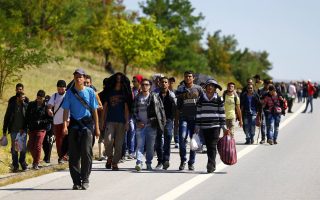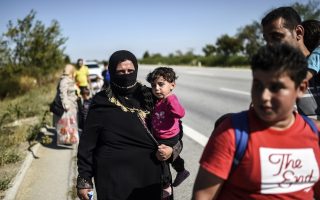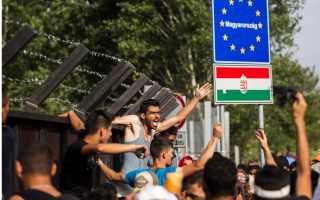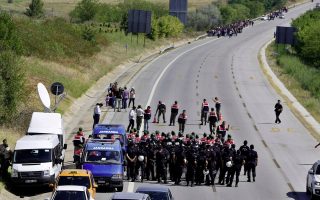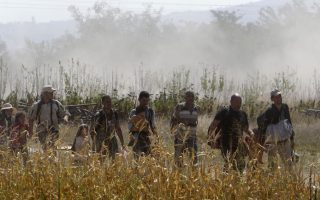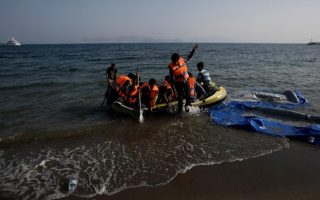Merkel calls for European unity, summit on refugee crisis
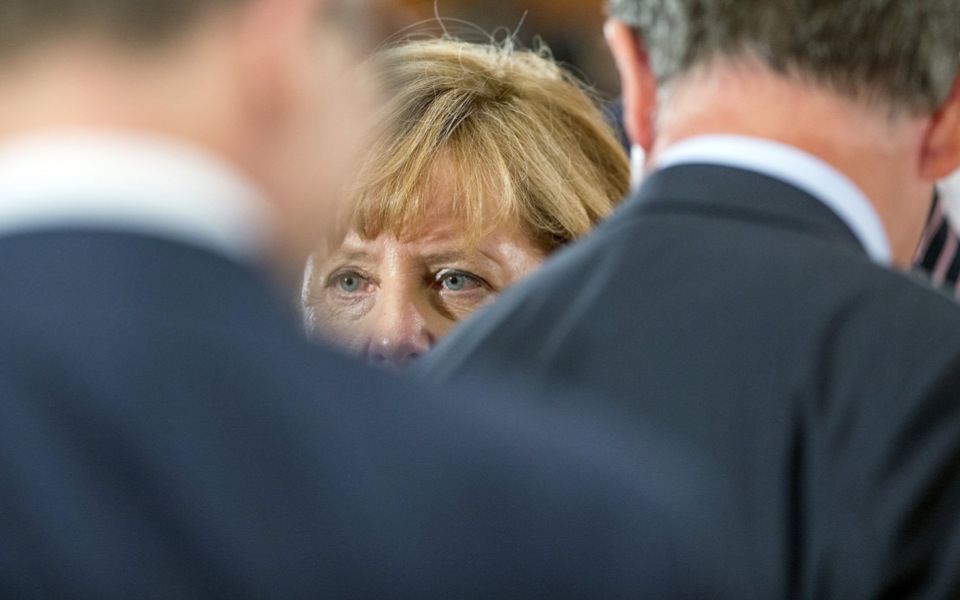
German Chancellor Angela Merkel on Tuesday called for a special EU refugee summit, urging unity after an angry reaction to a suggestion by one of her ministers that states that did not take in their share of asylum seekers could face financial penalties.
The proposal by Interior Minister Thomas de Maiziere was forcefully rejected by the Czech Republic and Slovakia, which are among eastern European states that have resisted European Union plans to share out refugees.
Merkel later took a more conciliatory tone, calling for Europe to come together on the refugee issue.
“I think we need to establish a European spirit again … I don't think threats are the right way to achieve agreement,” she told a news conference with Austrian Chancellor Werner Faymann, whose country is also in the front line of the refugee crisis.
Facing opposition from ex-Communist states, EU ministers failed on Monday to break a deadlock over sharing responsibility for accepting some of the hundreds of thousands who have sought asylum in Europe. They have been summoed back to Brussels next Tuesday but diplomats said those calling for national refugee quotas were loath to simply outvote their eastern neighbours.
De Maiziere said agreement was still some way off.
“So I think we must talk about ways of exerting pressure,” he told ZDF television, adding that some countries that opposed quotas were beneficiaries of structural funds – EU money allocated to help poorer regions catch up with wealthier areas.
A senior Czech official said threats to cut such funding had no basis in law.
“German threats that central Europe will be punished by cutting cohesion funds are empty but very damaging to all,” said Tomas Prouza, the Czech State Secretary for the EU.
Slovakia insisted it would never support mandatory refugee quotas. In response to Germany's proposal, Prime Minister Robert Fico said that never before had a country been punished for having a different opinion. Taking such a step would mean “the end of the EU”, he said.
Merkel said Europe faced one of its biggest challenges in decades and the problem could only be solved by the EU as a whole. She and Faymann called for a special summit next week.
It would not discuss sharing out refugees, which was being handled by interior ministers, Merkel said, but would deal with the question of supporting the countries the refugees are coming from, working with Turkey, and setting up “hotspots” for the registration of refugees in Greece and Italy.
European Council President Donald Tusk, who chairs EU summits, said he was considering the request and would decide on Thursday. Diplomats said it was unclear whether leaders might meet before or after the interior ministers gather on Tuesday.
Refugee forecast
De Maiziere stuck to his forecast that 800,000 refugees would arrive in Germany this year, despite some politicians saying there could be as many as one million.
After opening its doors to refugees from Syria's civil war, Germany temporarily reimposed border controls at the weekend, prompting other countries along the refugees' march northwards through Europe to do the same and casting doubt on the EU's Schengen system of passport-free travel within the bloc.
Police said more than 3,800 asylum seekers had reached Germany on Monday despite new controls at the border with Austria. They brought the number of asylum seekers who have entered Germany by train this month to nearly 92,000.
Arrivals in Germany seemed certain to rise after nearly 22,000 reached neighbouring Austria on Monday and Tuesday.
Officials there said 350 refugees had arrived in the city of Salzburg within an hour and a train was due to take more across the German border to Munich.
Women and small children were being allowed to board the train. Some young men appeared angry at the decision.
“For now, the situation is under control, but that can change within minutes,” said Johannes Greifeneder, spokesman for the city of Salzburg.
Government spokesmen have said that temporary border controls do not mean the frontiers are closed, but will allow refugees to be processed in a more orderly fashion.
However, the border measures were greeted with concern by German industry. The VDMA engineering federation feared there could be “negative effects on the EU internal market and the European Union overall”.
The refugee crisis has boosted support for the Alternative for Germany (AfD), a right-wing party that backs a tough line on immigration, to its highest level in nearly four months, an opinion poll showed on Tuesday.
The INSA poll for Bild newspaper showed support for the AfD at 5.5 percent, while support for Merkel's conservative bloc slipped 1.5 points to 40 percent, still the strongest party by far, but its lowest reading since late June.
[Reuters]
